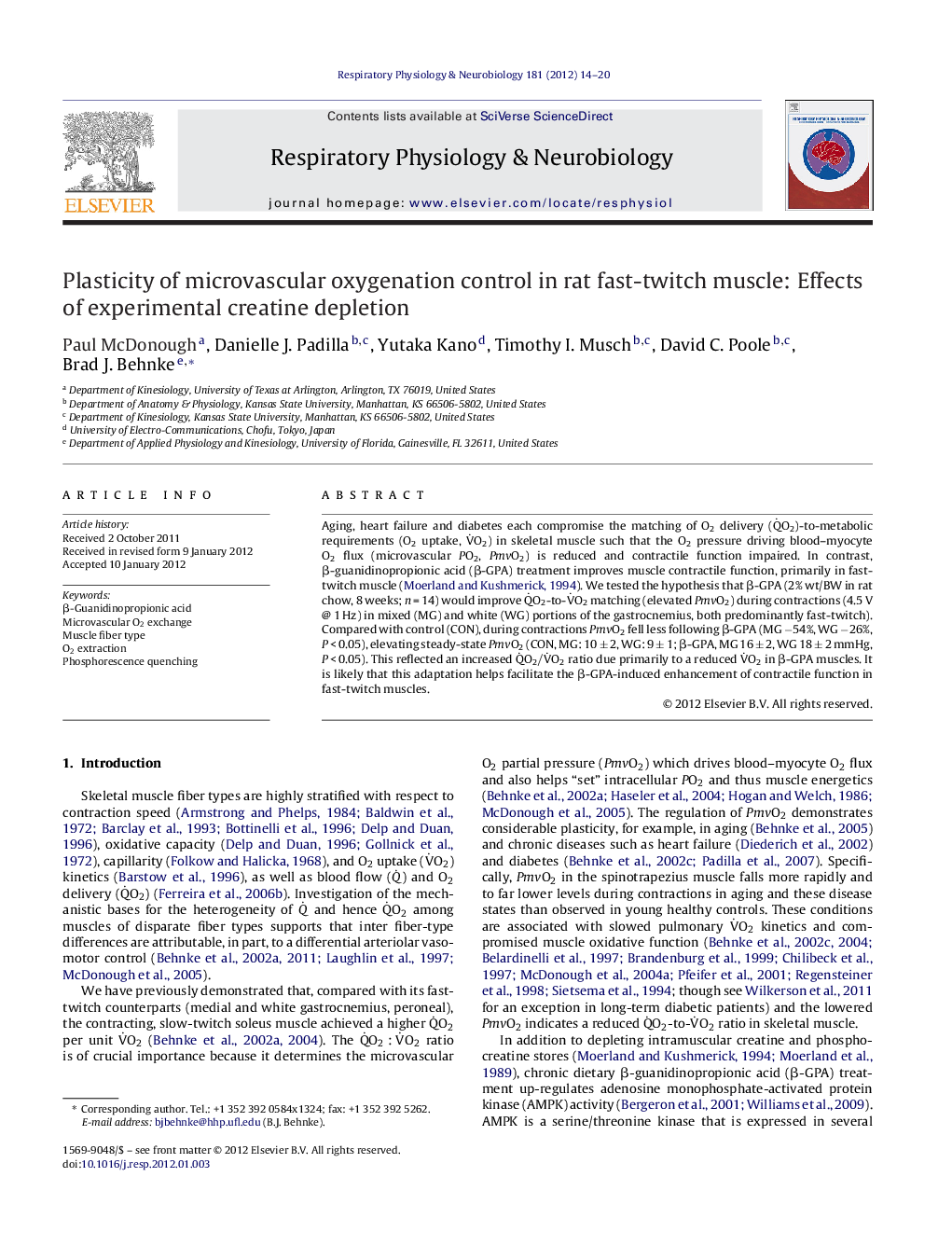| Article ID | Journal | Published Year | Pages | File Type |
|---|---|---|---|---|
| 2847338 | Respiratory Physiology & Neurobiology | 2012 | 7 Pages |
Aging, heart failure and diabetes each compromise the matching of O2 delivery (Q˙O2)-to-metabolic requirements (O2 uptake, V˙O2) in skeletal muscle such that the O2 pressure driving blood–myocyte O2 flux (microvascular PO2, PmvO2) is reduced and contractile function impaired. In contrast, β-guanidinopropionic acid (β-GPA) treatment improves muscle contractile function, primarily in fast-twitch muscle (Moerland and Kushmerick, 1994). We tested the hypothesis that β-GPA (2% wt/BW in rat chow, 8 weeks; n = 14) would improve Q˙O2-to-V˙O2 matching (elevated PmvO2) during contractions (4.5 V @ 1 Hz) in mixed (MG) and white (WG) portions of the gastrocnemius, both predominantly fast-twitch). Compared with control (CON), during contractions PmvO2 fell less following β-GPA (MG −54%, WG −26%, P < 0.05), elevating steady-state PmvO2 (CON, MG: 10 ± 2, WG: 9 ± 1; β-GPA, MG 16 ± 2, WG 18 ± 2 mmHg, P < 0.05). This reflected an increased Q˙O2/V˙O2 ratio due primarily to a reduced V˙O2 in β-GPA muscles. It is likely that this adaptation helps facilitate the β-GPA-induced enhancement of contractile function in fast-twitch muscles.
► We examined experimental creatine depletion effects on muscle PO2 and O2 uptake. ► Beta-GPA enhanced muscle oxygenation across the rest-to-contractions transition. ► Blood flow was not different between groups. ► Contracting O2 uptake was reduced in the beta-GPA group. ► Experimental creatine depletion may enhance contractile performance.
